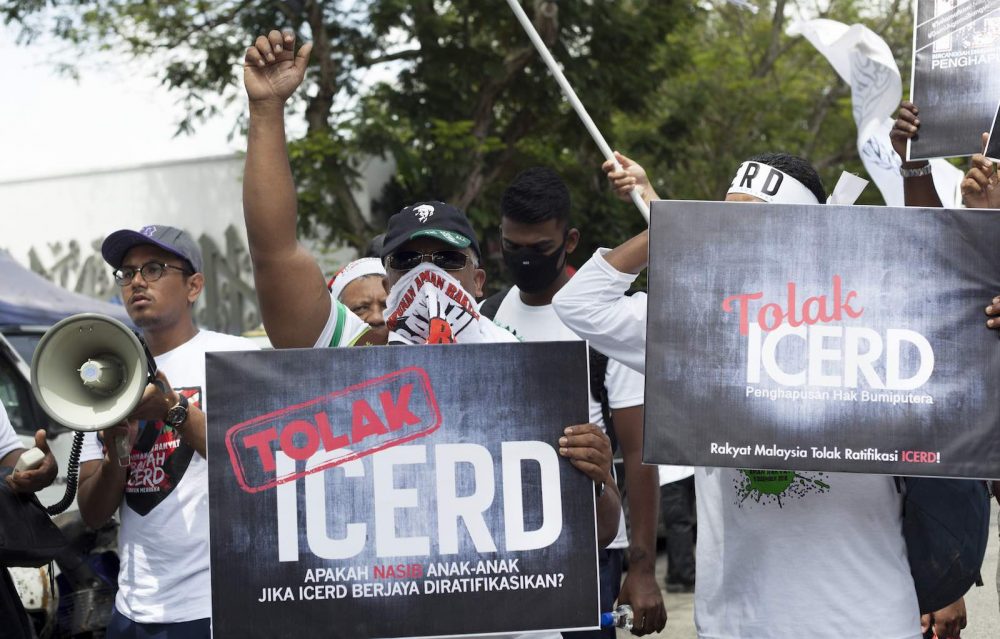Malaysia’s dangerous racial and religious trajectory

Identity politics has turned inflammatory as Malaysia’s former ruling party tries to claw back support.
Amy Chew, The Interpreter
When Malaysia’s Barisan Nasional (BN) coalition ruled the country, it faced an opposition that campaigned on a platform of anti-corruption, free and fair elections, and greater democracy.
BN, led by the United Malays National Organisation (Umno), the largest and most dominant party, ruled the country for 61 years until its shock defeat last year by the Pakatan Harapan coalition, with Mahathir Mohamad at the helm.
Now, for the first time in its history, Umno finds itself out of power and playing the role of the opposition. And in this “new Malaysia”, where once the opposition campaigned for reforms and clean governance on a pluralist platform, it has now been replaced by a previously moderate Umno turned ultra-Malay to court the Malay majority.
To further burnish its ethno-Malay credentials, Umno has teamed up with its one-time arch enemy, the Islamist Pan Malaysian Islamic Party (PAS), to contest elections under the banner of Malay rights and Islam.
This month, thousands thronged Umno’s headquarters at the Putra World Trade Center in one of the largest crowds seen in recent years, to witness the signing of a charter to seal the Umno-PAS collaboration.
The change in the characteristic of Malaysia’s opposition from a plural platform to an ethno-religious one has transformed the country’s political landscape. Identity politics has become pronounced and inflammatory.

